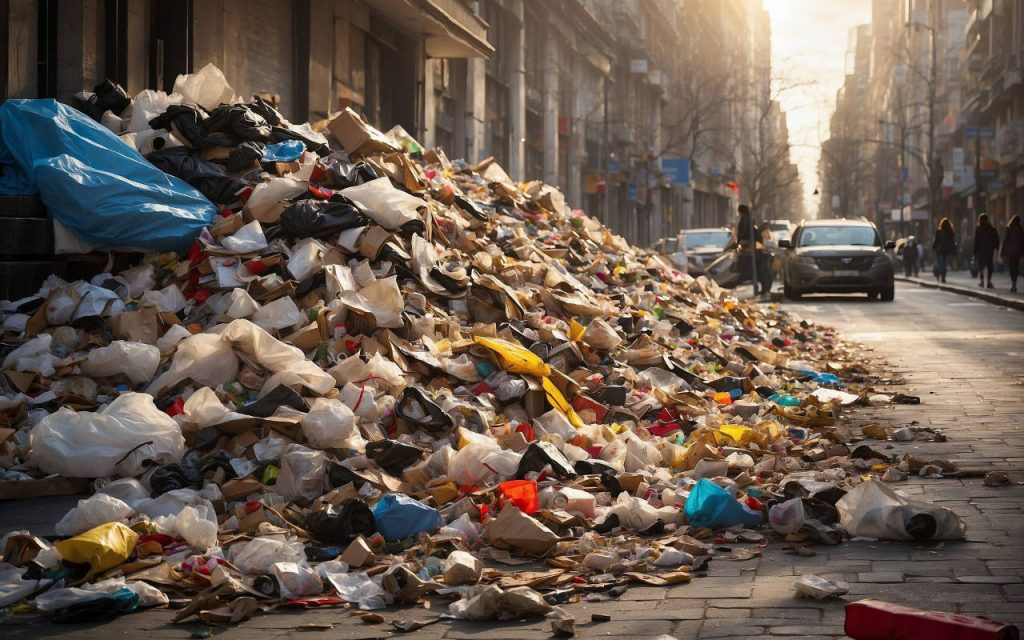Is the circular plastic economy finally here?
Lately, it feels like the whole world has been on a collision course with environmental disaster. We’re reminded of it with every weird weather event, climate protests, and with every forest fire. And when it comes to plastic – you know it, and we know it; plastic pollution is unsustainable.
But a breakthrough in polythene waste transformation offers a glimmer of hope. A groundbreaking discovery was recently highlighted that could potentially make polythene waste a thing of the past. But how – and what are the implications for the packaging industry and environmental sustainability? And how could this take us out of our current “recycling funk”?

The current state of play in plastic recycling
Plastic recycling has long been touted as a solution to the plastic problem – and we are still staunch advocates of recycling. But the reality of the situation is that, despite widespread efforts to increase recycling rates, it’s not all that easy to recycle most plastics.
Read more: Should recycling be the government’s job?
Many plastics, including polythene, are notoriously difficult to recycle efficiently. Most of the problems come from sorting material into like-for-like groups. And because it’s so hard, vast quantities of plastic end up in landfills, incinerators, or worse – polluting our oceans and ecosystems.
There’s also a hidden economy of plastic designated for recycling being shipped away to countries to “disappear”. Of course, it doesn’t disappear. It just moves the problem to a country that is willing to accept waste for reward. And that too is unsustainable.
This new discovery in polythene waste management could change all of this. And it exploits one of polythene’s few weaknesses to change not only the composition of the material, but the value of polythene waste. And this is probably the most exciting thing about it, because resistance to recycling has more or less always come down to money and value.
A new polythene waste discovery
The new method in question converts polythene waste into valuable chemicals – using sunlight. If you’ve been following our posts as of late, you’ll know we talk about UVIs, or ultraviolet inhibitors, quite a lot!
Read more: The effects of UV radiation on polythene
And that’s because UV light damages polythene severely, breaking the polymer down into a brittle, inflexible pile of microplastics. Well, the research team at the University of Adelaide who discovered this new recycling method have successfully exploited this feature of polythene, and have created a low-energy process that runs at room temperature.
Using little more than a blend of catalysts in a liquid suspension, polythene can be broken down into ethylene gas – one of the most valuable gases in the world – and propionic acid. The name propionic acid makes it sound bad, but this is a naturally-occurring compound. We humans even make it in our skin and gut biome! It’s an important food preservative (in baked goods especially), and has significant value in the chemical industry as an antibacterial and antifungal agent.
This process would represent a massive shift in how we view polythene waste. Because no longer would countries be shipping their recycling off to far away lands to be “dealt with” – they’d be seeking to profit from the truly circular economy this “waste” material now represents.
The impact on the packaging industry
So what could this breakthrough do to our industry? Well, we could stand to become totally environmentally sustainable if the process truly is low-energy and circular. And that could be game-changing. Manufacturers, retailers and consumers stand to benefit from this simple circularity, as polythene becomes profitable after its useful life is over.
Would it mean the end of traditional meltdown recycling methods? Can we throw caution to the wind and use virgin material for everything now?
Well, we think not. For one, there’s still the Plastic Packaging Tax to think about. And recycling is about total waste reduction, including energy, not just plastic waste. And sometimes, it just makes sense to reuse existing material. Wastefulness shouldn’t be rewarded with the opportunity for more wastefulness. That’s half the reason why we’re lumbered with the problems we have today.
And then of course, there’s the fact that this method and process is still in its infancy. It’s far from perfect. It doesn’t yet address the resistance of additives, like UVIs, or consider byproducts of the process that could potentially be harmful.
So, we might still be a way out from this being the new normal for polythene recycling. Until then, we all need to do our bit. And that includes us polythene packaging manufacturers…
Polythene with purpose
Design a recycled polythene blend for your packaging, with the experts at NPF Packaging. Get a quote now, or call us on 01773 820415 to start your order.


